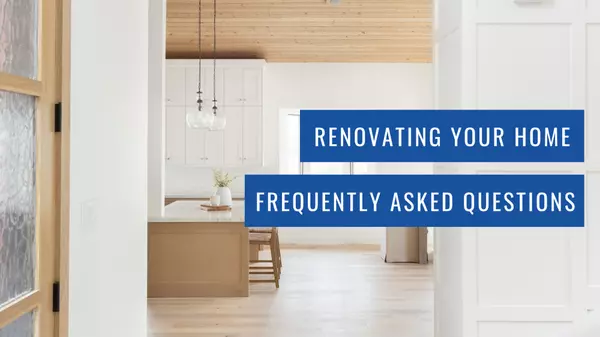Pros & Cons of Selling During the Holidays

Pros and Cons of Selling During the Holidays If you are thinking about listing your home this fall, you might be concerned about showing it, and possibly having to move, over the holiday season. The holidays are already a busy time of year for most families, so you would be right to wonder if you ar
Read MoreRenovating Your Home? Check Our FAQ’s!

Renovating Your Home? Check Our FAQ’s! 1. How do I pick a contractor? Ideally, you want to build the same kind of relationship with your contractor as you do with your real estate agent: one built on trust that makes you want to go back to that person for any future needs. Your contractor should be
Read More-

When Should I Refinance? Low-interest rates have many homeowners wondering if it’s a good time to refinance. Refinancing can save you a lot of money in the long term when done correctly. It’s important to consider the drawbacks as well. Here are some reasons why you might want to refinance, and a
Read More -

12 Tips for an Easier Move As exciting as it is to move into a new home, not many people look forward to the actual moving day. Whether you are moving across town or across the country, moving is stressful. Here are some helpful hints from expert movers to make the big day a little more bearable.
Read More Upsize or Downsize: What's Your Best Move?

Deciding if it is time for your family to upsize or downsize is not always a clear choice. There are factors to consider that might push you to take the leap or stay put for a while longer. Whether you are thinking about upsizing so your family can spread out or purging possessions so you can down
Read MoreYour Question about selling your home: Answered

If you have a home to sell, you’re probably excited to get the process started. There are many things you need to consider when selling your property, and it’s hard not to feel overwhelmed by the task. The good news is we’ve done extensive research about what you need to know about selling your ho
Read MoreFall Market Update: Is it a good idea to sell in fall?

Fall Market Update: Is the Fall a Good Time to Sell? The early spring through the summer are generally the busiest times of the year for home sales, but the fall can be a particularly advantageous time of year for sellers. Housing inventory drops off during the fall months, so sellers have less co
Read More
Categories
